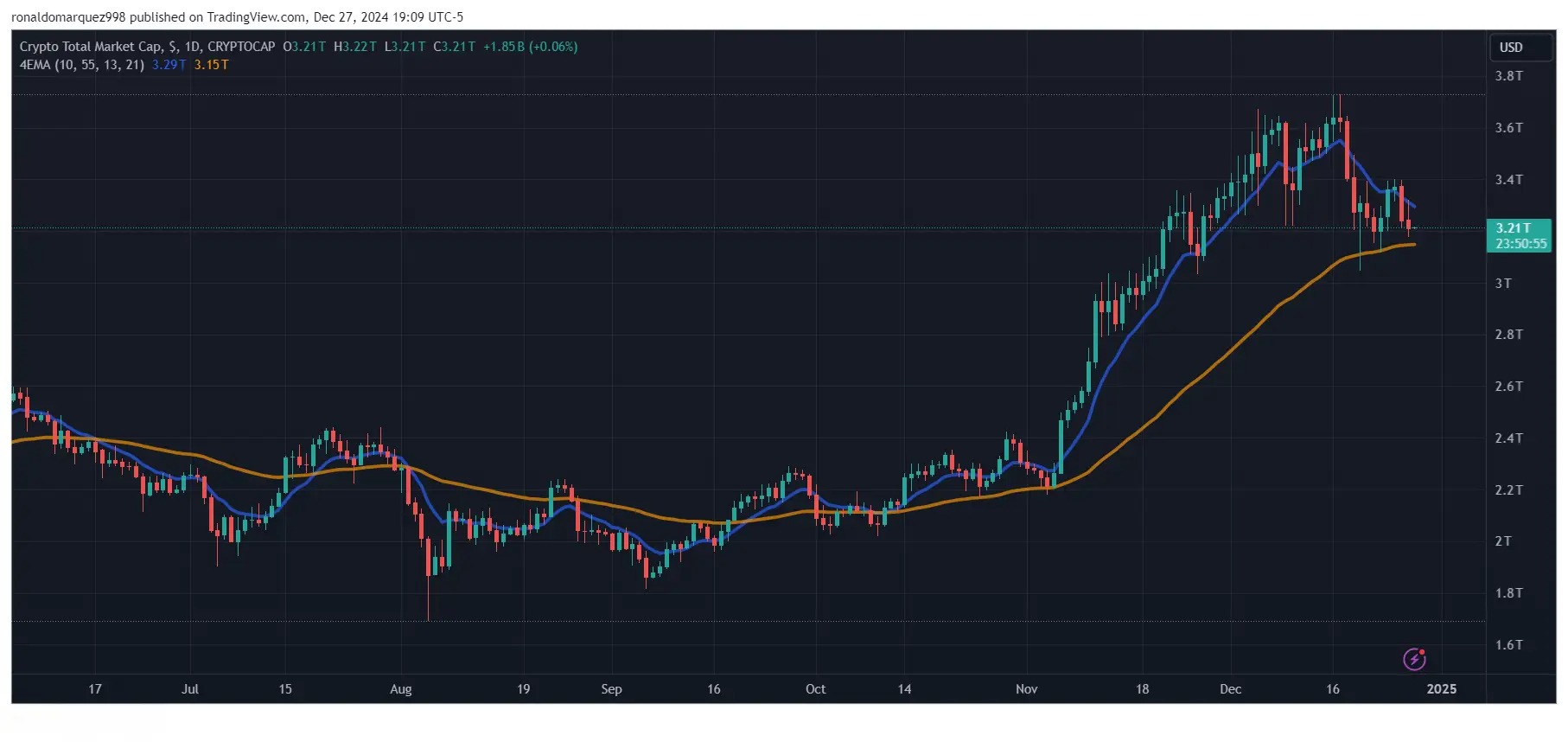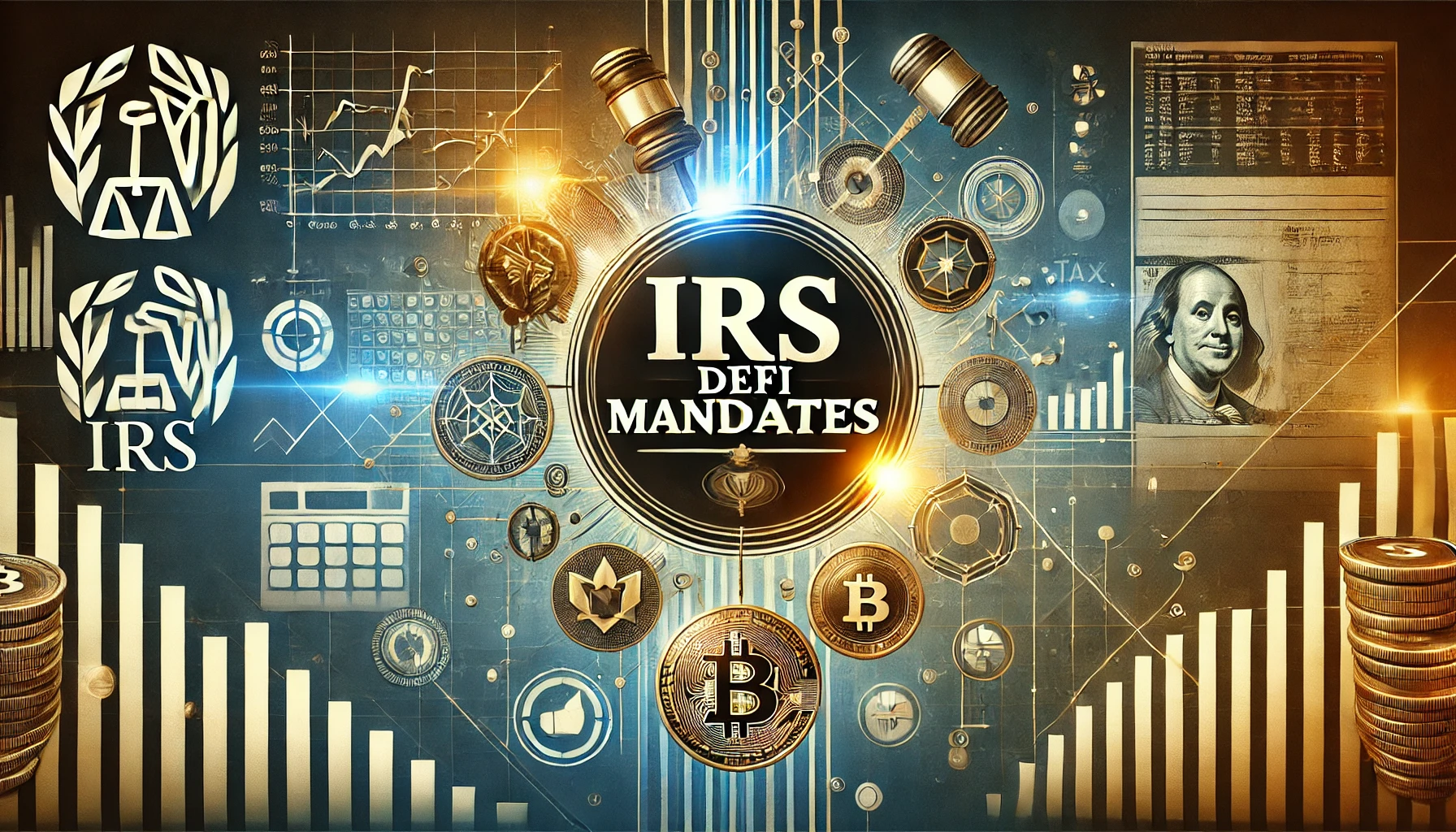IRS DeFi Mandates introduce new rules that require platforms to report user transactions starting in 2027. One of the newest changes is the IRS’s new rule requiring DeFi traders to report Crypto trades. This change greatly impacts how decentralized finance (DeFi) systems work with other regulations.
As these rules take effect, users of both DeFi systems and cryptocurrencies need to know what they mean for their money. This piece discusses the new IRS reporting rules for DeFi dealers and how they will change future Bitcoin deals. The US Internal Revenue Service (IRS) has completed rules requiring decentralized finance (DeFi) traders to record the gross profits from digital asset deals. This is a big change for the Bitcoin world.
IRS Targets DeFi Brokers
DeFi front-end service providers will become brokers in 2027. Like financial intermediaries, this classification requires tight reporting. Platforms must produce Form 1099 for name-and-address transactions. Since they sell bitcoin, Front-end service providers must report gross revenue to the IRS. Taxing unregistered transactions increases crypto market transparency. DeFi front-ends enable rules-compliant decentralized exchanges. For financial purposes, the IRS recognizes digital asset trading platforms as brokers. The IRS considers software that interfaces DeFi trading apps with a DLT a transfer service.
Crypto Taxation Future Uncertain
Many people in the DeFi group are worried about the rules meant to close tax gaps in the 2021 federal structure bill. Well-known lawyer Jake Chervinsky doesn’t agree with the new rules at all. He supports bitcoin. He pointed out that this illegal rule was the final attempt by the anti-crypto army to consolidate its hold on power. There should be a court or a new government that throws it out. He also said that the rules go against the Constitution and beyond what the IRS can do by law.

Congress clarified that the term “broker” did not refer to DFS sites. As long as individuals make a “good-faith effort” to comply with the regulations, the Internal Revenue Service (IRS) will not levy a punishment against them if they purchase digital assets in the year 2027 and fail to disclose them. The reason they did this is because they are aware of the concerns that individuals have. As a result of this regulation, purchases made in 2027 and some transactions made in 2028 will be subject to a higher amount of withholding tax.
The business has flexibility as it adjusts to the new rules. The new rules could affect 650 and 875 DeFi buyers, changing how autonomous markets work. The IRS asserts that the rules do not impact hardware or internet service providers. However, it does show that authorities are getting stricter because DeFi front-ends are now seen as sellers.
Also Read: SUI Token Surge Boosts $300 Million Launch in January 2025
Summary
New rules under IRS DeFi Mandates require DeFi (Decentralized Finance) sellers to report their Crypto trades to the IRS. Starting in 2027, the IRS DeFi Mandates will classify DeFi platforms acting as front-end service providers as dealers, requiring them to send in Form 1099 with full information about each user transaction. The objective is to enhance market transparency and eliminate tax loopholes in the 2021 infrastructure bill.
Many members of the DeFi community, including the renowned lawyer Jake Chervinsky, strongly oppose the rules, arguing that they are excessive and in violation of the Constitution and laws. The IRS understands stakeholders’ concerns. It is prepared to accommodate deals in 2027. Stakeholders must demonstrate a “good-faith effort” to adhere to the rules. The rules could affect 650 and 875 DeFi users, changing how the automated market works. Since the IRS has excluded hardware and internet service companies, it will scrutinize and possibly regulate DeFi systems.



